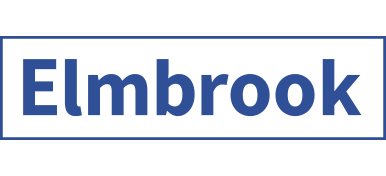To help students prepare to exercise their professions in a well-integrated way in all the aspects just mentioned, Elmbrook’s programs encourage students, even those in technical fields, to acquire some measure of formation in the humanities, in areas like history, literature, and philosophy. The study of such subjects allows a person to reflect on the larger life-questions and come to a mature understanding of what counts for success in life and what makes for a good community; this sort of understanding is needed if one is to live a well-integrated life. Also, as mentioned above, the programs aim to give students basic principles of professional ethics by which they will be able to recognize and confront ethical issues in their professional life.
To be a good professional requires, among other things, that the person successfully integrates his professional activity into the broader context of his whole life. A normal human life includes much more than professional activities: family, religion, participation in the political and civic life of one’s community, as well as many various activities involving sports, the arts, education, etc. It is very possible, indeed it happens all too frequently, that a person becomes overly dedicated to his professional activity to the detriment of other aspects of his life, so that his life, taken as a whole, suffers. To be a good professional implies achieving a healthy work-life balance. And to achieve this balance, a person needs to reflect on what constitutes a successful human life so as to be able to integrate all the elements of his life in a healthy way.
In addition to integrating one’s professional life into one’s personal life, it is necessary for a good professional also to integrate his professional work into the larger community. A good professional needs to consider whether and how his work is contributing the good of the community and needs to avoid activities that are harmful to the moral climate (e.g., contributing to pornography), to the physical environment (e.g., polluting the atmosphere), and even to the economy (e.g., speculation that has no good result other than the enrichment of some private individuals). Otherwise he could easily find himself exercising his skills in a way that is actually harmful to the community (e.g., a plastic surgeon changing a criminal’s fingerprints or a defense contractor developing an intrinsically immoral weapon). Obviously, measuring the effect of one’s activity on the larger community is not always simple; nevertheless, a good professional needs to consider it and try to promote the good of his community and avoid harming it. To this end he needs to have some idea of what is good and what is harmful to the community.
A particularly important aspect of integration is that of professional ethics. Professional ethics mark out certain kinds of activities which are “out of bounds” in the exercise of one’s profession and generates rules or norms that identify such activities. These ethical norms, however, are not arbitrary. Rather they direct and guide the professional precisely in this area of harmonizing his professional activity with the broader human good. To practice ethical behavior is in fact to act in such a way as to promote the human good and not harm it. Hence, a good professional needs to know the ethical norms that apply to his professional activities and needs to follow them. He should see that these norms are not really extrinsic to the profession (or some sort of “brake”), but arise from the profession’s intrinsic ordination to the broader human good.


